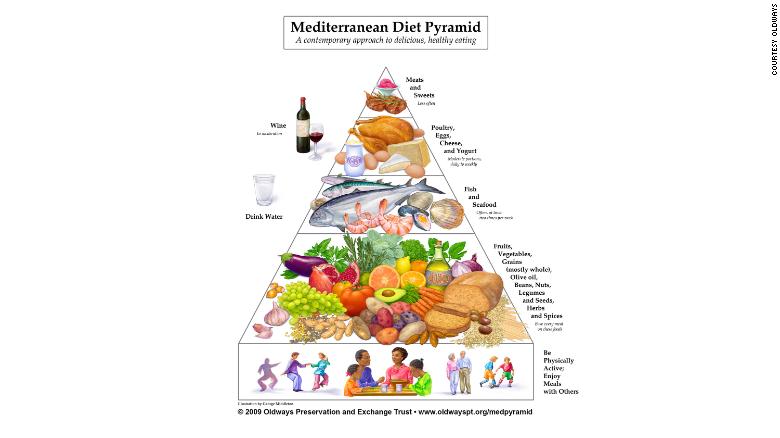Post by mastodon on Feb 24, 2019 17:04:21 GMT
This diet has been reviewed by U.S. News' team of expert panelists.
It's generally accepted that the folks in countries bordering the Mediterranean Sea live longer and suffer less than most Americans from cancer and cardiovascular ailments. The not-so-surprising secret is an active lifestyle, weight control; and a diet low in red meat, sugar and saturated fat and high in produce, nuts and other healthful foods. The Mediterranean Diet may offer a host of health benefits, including weight loss, heart and brain health, cancer prevention; and diabetes prevention and control. By following the Mediterranean Diet, you could also keep that weight off while avoiding chronic disease.
There isn't "a" Mediterranean diet. Greeks eat differently from Italians, who eat differently from the French and Spanish. But they share many of the same principles. Working with the Harvard School of Public Health, Oldways, a nonprofit food think tank in Boston, developed a consumer-friendly Mediterranean diet pyramid that offers guidelines on how to fill your plate – and maybe wineglass – the Mediterranean way.
The basics:
Eat: Vegetables, fruits, nuts, seeds, legumes, potatoes, whole grains, breads, herbs, spices, fish, seafood and extra virgin olive oil.
Eat in moderation: Poultry, eggs, cheese and yogurt.
Eat only rarely: Red meat.
Don't eat: Sugar-sweetened beverages, added sugars, processed meat, refined grains, refined oils and other highly processed foods.

It's generally accepted that the folks in countries bordering the Mediterranean Sea live longer and suffer less than most Americans from cancer and cardiovascular ailments. The not-so-surprising secret is an active lifestyle, weight control; and a diet low in red meat, sugar and saturated fat and high in produce, nuts and other healthful foods. The Mediterranean Diet may offer a host of health benefits, including weight loss, heart and brain health, cancer prevention; and diabetes prevention and control. By following the Mediterranean Diet, you could also keep that weight off while avoiding chronic disease.
There isn't "a" Mediterranean diet. Greeks eat differently from Italians, who eat differently from the French and Spanish. But they share many of the same principles. Working with the Harvard School of Public Health, Oldways, a nonprofit food think tank in Boston, developed a consumer-friendly Mediterranean diet pyramid that offers guidelines on how to fill your plate – and maybe wineglass – the Mediterranean way.
The basics:
Eat: Vegetables, fruits, nuts, seeds, legumes, potatoes, whole grains, breads, herbs, spices, fish, seafood and extra virgin olive oil.
Eat in moderation: Poultry, eggs, cheese and yogurt.
Eat only rarely: Red meat.
Don't eat: Sugar-sweetened beverages, added sugars, processed meat, refined grains, refined oils and other highly processed foods.







